Introduction
Have you heard all of the hype behind plant-based diets?
You may have heard that vegans struggle to obtain enough protein through a diet that only consumes plants.
However, that is a myth that is now regularly being debunked by many health professionals.
This week on The Goodness Lover Podcast, we debunk the many myths surrounding plant-based diets with Simon Hill — Nutritionist, Physiotherapist, and author of The Proof is in The Plants.
Watch along as Simon explains the many benefits of eating a plant-based diet.
Watch the Interview:
This episode reveals:
💊 The research behind the nutrients and vitamins needed on a plant-based diet.
😬 How soy got a bad reputation - should you fear it?
🌱 How to obtain omegas in plant-based diets.
🌎 Why the planetary health diet means that 88% or more of calories should come from plant-based foods.
👣 How to lower our environmental footprint by making small changes.
You’d be shocked to learn about the numerous chronic health conditions that can be treated from a plant-based diet.
Learn how to utilize plant-based foods to increase the longevity of your life AND obtain all essential nutrients.
Additional Resources
To connect with Simon Hill and discover more of his work, you can find him on Instagram and Facebook. You can also visit his website here.Transcript
Sarah: Hello, and welcome back to the Goodness Lover show. Today we're joined by nutritionist and author, Simon Hill. Simon is the host of the hit podcast Plant Proof, and has an online community of over 300,000 people. He's here to bust some myths around plant based eating and what we can do to have a truly sustainable diet. Let's jump in.
Matt: Hello Simon Hill, welcome to the show. We're so excited to have you here with us.
Simon Hill: Matt and Sarah, thank you so much for having me. It's an honor.
Matt: And it's actually cool to hear an Australian accent on the other side.
Sarah: I know.
Matt: So, you're tuning in from Sydney?
Simon Hill: Yes. So I think we're just an hour or so away from where you guys are.
Matt: Awesome. So mate, you've got an amazing online community of people that are really passionate about plant based nutrition, etc. Did you grow up being plant based? Or How did you get started in this whole journey?
Simon Hill: No, I didn't, I did eat some plants. But I certainly wasn't plant based. They were there, but they weren't the hero of the play. Let's just say that. I grew up in a very typical Australian family. And probably similar to your diet and many of the diets of our sort of generation, where meat was the hero of the plate, what's for dinner tonight, mom, dad and it's always, chicken something or beef something or lamb something. And yeah, the plants were relatively an afterthought and not really the part of the meals that I enjoyed the most. And that was probably the way that they were presented, which I've come to learn now.
And going through sort of high school, I then started to delve, I guess, into more of the ultra processed and junk foods after sporting events. I was very active and often celebrating sporting events was at McDonald's, or some other type of fast food and that sort of started to creep into my diet. And it wasn't it till my mid 20s when I decided to look closer at what I was eating, and starting to make some changes.
Matt: Cool. So what was it? What made you curious?
Sarah: What was the catalyst?
Simon Hill: Really, the catalyst was discovering information that was showing me that we have much more control over our health than I'd thought. And for many years there, I thought that my health fate was going to be similar to my father's. And so maybe I'll rewind to that.
When I was 15 years old, I was spending a Sunday afternoon with my dad, we were driving around the Yarra Valley, which is a wine region outside of Melbourne in Victoria where I grew up. And on this Sunday, we were having a great day together and visited a number of wineries and life was good and we were driving back home. We had two homes at this time, one in the city and one was sort of country home and my dad and I were staying in the country that night and my brother and mum were in the city.
And driving back to the country home, we were planning on going home and cooking dinner and it was Sunday evening, probably watch something on TV and head off to bed and dad started to experience some chest pain. And he said that he was experiencing some pain and I could see on his face he was grimacing a little bit. And he then downplayed it and reassured me that it probably was okay. And we got home and had dinner, he continued to sort of deny that anything serious was happening. And so we had dinner and I headed off to bed and about an hour or so later I heard a bunch of noise out in the living room. And in the back of my mind I was recalling that he had been experiencing this pain, so I thought I better go and check if he's doing okay. I went out and yeah, he wasn't doing okay. By this stage he was bent over. He was sort of starting to look quite pale, breathless. The noise was him actually making his way to grab the phone and call triple zero, which is the emergency number here in Australia.
And so he did call them and they asked if anyone was there to relay the symptoms and sort of describe the situation, which often they do to get a better understanding of what's happening. And so I spoke to the paramedics on the phone and described what was happening. And because we were in the country, they said, "Look, based on what you're describing, we need to send a helicopter." And I should add, my dad was 41 at this time, so not old by any standards. This came out of the blue, we had no reason to believe that dad was going to experience poor health, he wasn't relying on the medical system, he was not on any medications, he had no diagnosis of any condition.
And so they did send the helicopter. And before I knew it, they came and scooped him up off the ground and put him on a stretcher and attached him to a heart rate monitor and oxygen and checking all the vital signs and whatnot. And this was very frightening as a 15 year old, to watch, and particularly the pace at which this was happening. Hours earlier, we were having a great Sunday. And out of the blue, all of a sudden, here was dad in the hands of paramedics and about to be put on a helicopter. And so there was a lot of fear and a lot of unknown around what was happening.
And so he was flown to the nearest hospital and I couldn't fit into the helicopter. So I trailed by ambulance on the road and made my way to the hospital. And by that time, I'd called my mother and my brother and suggested that they should come down as well. And so they did and we got to the hospital and the doctor, after what felt like a very long wait, the doctor came out and said to my brother and my mother that they had saved my dad's life. And that was obviously the most important thing for us at that time. And that he would be on medications for the rest of his life. But he was stabilized and he would get a second chance at life. Which was great news for us.
And then the next day, we had a sort of family meeting, once dad was in a position to be able to do so. And the cardiologist had taken my dad's history by that stage and had realized that his dad had also had a heart attack. Although my grandfather's heart attack was in his 60s, not in his early 40s. And so he suggested to my brother and I that we should be screened as we're getting older. And really, that is good advice. It's true. But the conversation kind of ended there.
And so for a long time, I felt like I was going to perhaps follow my father's footsteps and as I said earlier, this came out of the blue. So my dad was 41, he was a typical Australian young father with two young boys, he exercised quite regularly, he was eating what everyone else was eating. So there was no real reason for me to believe that my journey was going to be any different. For a long period, I really felt like my health fate was going to be determined by my genes. And that is a very disempowering, very limiting belief. And then our family, we really didn't sit down and sort of look at why did my dad experience this loss of health, nearly lose his life at such a young age?
And it wasn't until a good 10 years later and I'd finished my first degree, I was studying again. And I was beginning to realize that, yes, this diseases is like cardiovascular disease, so heart attack and stroke, but also type 2 diabetes and various types of cancer and cognitive decline and dementia. Yes, they are running in families. Without a doubt they are. But by and large, the main reason they're running in families is because families are adopting the same lifestyles. And yes, genetics do play a role. They certainly do and in a very small number of cases, in fact, very tiny percentage, no matter what lifestyle you lead, genes can determine your health outcome. And that's very sad, very unfortunate, of course.
But for most of us, science has very clearly shown that we have so much more control than we believe. There are various studies that have looked at identical twins, and looked at the influence of nature versus nurture. What contributes more to the health outcomes of that person over their life and it seems that genetics probably account for around 20% of your health fate, whereas the environment and the lifestyle decisions that we make account for around 80%, which means we do have much more control, even if we've been dealt a bad sort of genetic card, so to speak.
So that was the initial seed back when I was 15. And then 10 odd years later, it was delving into the nutrition science. And I was being really challenged by what I was finding, because of course I was saying that in high quality science, whether we're looking at epidemiology, which observational studies looking at people in the real world, or we're looking at clinical trials, there is a very clear pattern that describes a healthy diet, a diet that helps us feel better today and feel better for longer. And that diet tends to be one where the majority of calories are coming from whole plants. And so as a mid 20s male who was working at that stage, with elite AFL players and in a gym culture myself, discovering that information was quite challenging. But ultimately, with what I'd seen and experience with my father and my own family, it became just so compelling for me that it was kind of impossible to ignore.
Matt: Interesting. So you're looking at this data that's impossible to ignore. And I guess maybe you're thinking at that point that if you've got heart disease, maybe it's best that you go on a plant based diet. But from the perspective of working with elite AFL players, which for those that don't know, that's Australian rules football, so one of the top sporting codes in Australia. Were you thinking that there's a role of plant based diets for elite athletes at that point?
Simon Hill: I wasn't actually looking at it too much at that early stage, from the athletic angle. I was looking at the chronic disease risk side of things. But ultimately, and I write about this in the book, if science showed that we could live to 140 only eating kale, I wasn't prepared to do that. I needed also evidence that I could continue my own personal athletic and performance endeavors as well. So the initial, I guess, inspiration behind the change was more of the chronic disease side of things. But then I also really wanted to work out well, is it possible to do this without sacrificing performance? And if so how can I do that? How can I optimize for best results and hopefully have the best of both worlds?
Matt: Sure. Excellent. I guess you would maybe be going on this sort of mythbusting journey yourself, an Ozzy version of it. Tell us about that.
Simon Hill: I was probably perpetuating a lot of those myths at one stage, I'm sure.
Sarah: [inaudible], where do you get your protein?
Simon Hill: Well, that's what I wondered. All of these myths, they're valid concerns. When someone comes to me and ask me now, the easy route would be for me to kind of sort of suggest to them that it's not a valid question. And this has been debunked for a long time ago, but I really realized that everyone is on their own journey. And if you are just a member of an Australian community, or many Western communities, this is their way of thinking. This is so built into our culture and our society that I completely understand where these conditions come from. In fact, if people didn't have these questions, I'd be worried in some ways.
So the question around protein, for example. I used to believe that plants were completely missing the building blocks of protein, which are essential amino acids. And with quite a bit of research, and now having interviewed many nutrition scientists myself, I realized that I had that wrong, I had that wrong in a big way. And all plants contain all of the essential amino acids, which are the nine essential amino acids that are building blocks for protein. And there are no plants that are actually missing essential amino acids. And so that's something that I had to clear up with myself.
There are a bunch of other sort of areas of protein we can delve into if you want to go deeper than that.
Sarah: Sure, yeah.
Simon Hill: So I guess the next thing that usually comes up with protein is, you would have heard of incomplete-complete before.
Sarah: Yes.
Simon Hill: And so building on what I just said, then, often we're mistakenly led to believe that incomplete means a certain food is missing an essential amino acid. And that's actually incorrect. And what it actually means is that there is an essential amino acid in that food that you would not consume in enough quantity if you were to only eat that food for all of your calories. It's what's called a limiting amino acid. So for example, lysine in rice. And if we go too far into the weeds here, you can let me know, we can come out. But lysine is an essential amino acid. Say you eat two and a half thousand calories in a day, and if you were to only eat rice, then you would fall short on the amount of lysine that we require. And so really is that very relevant to us in western populations? Not so much. It is relevant, though, for populations where there is food security issues. And so we have to understand the application and why those words, incomplete and complete exists and what they really mean, because often that is lost on social media.
And the next question that often can come up after that is around bioavailability. And again, this is a really valid question. And so there are there many things said online around animal versus plant protein, suggesting that plant protein is inferior to animal protein, because it's less bioavailable. And by bioavailable, I mean that the percentage of the protein in that plant that your body can digest and utilize is lower, or that's the sort of general understanding and how it's commonly put anyway. But there are some problems with that, that need to be discussed and science in recent years is suggesting that by and large, that's not something for us to be concerned by.
And so the initial studies that did look at differences between animal and plant protein bioavailability, were using two different scoring systems. But the most important thing here without getting too complex, is that these systems were using animal models. So the first ones were looking at rats who have a completely different digestive system to humans and a different ability to extract protein from foods. But the second and most important one is that they're feeding uncooked plant protein to the animals, be it rats, [inaudible], pigs. And we know this is a problem because I doubt you guys would eat a raw legume in its dry form. And we know that when you soak and when you cook legumes, the amount of protein that your body can actually utilize is much, much higher.
And so those studies did show significant differences between animal and plant protein bioavailability. That's true. But in the methodology, we can see that it's not actually a representation of how humans would consume these foods. And in fact, it's not even looking at humans and the recent studies in the last few years, and I'll be the first to admit, I'd like to see more studies on this. But the recent studies that have come out, that have looked at plant proteins and the reason why I say I'd like more is that they've only looked at sort of 5, 10, 15 different types of plant protein, but really there are hundreds. They're suggesting that if there is any difference, it's probably only a few percent. So that's the second sort of myth around plant protein.
But overall, what I was able to find was that we can get enough protein from plants, that contain all of the essential amino acids. And the bioavailability appears to be quite similar to animal protein. So that was enough for me to feel quite confident in then changing the sources of protein on my plate.
Sarah: Awesome.
Matt: Great. Right, so we have the protein part of the picture, which I guess is looking compelling. And then there's, people would say, "But wait, Simon, what about my essential vitamins?" I've seen some recent studies on news articles saying that vegans or vegetarians, say for example, in the UK, are having higher bone fractures, or they're more prone to anxiety. How would you respond to that?
Simon Hill: Should we start with the bone fractures?
Sarah: Yes.
Matt: Sure.
Simon Hill: I guess top line, any diet that is not appropriately planned can go wrong, 100%. And in my book, whilst my book is actually not about shifting to a certain dietary label, it's more about just adding more plants to your plate and finding that level of commitment that's right for you, I do go over how to plan a completely plant exclusive diet, if that's right for you, if someone chooses to go down that path. And I do that, because if I can show what's possible there, then we can cover some of these myths. And so I certainly cover the bone fractures calcium one. I think the research that has come out is particularly interesting. And it can be easy just to say bad science and discard it. But I think there are actually key learnings from these papers.
With a plant based diet, be it plant predominant or plant exclusive, there are huge benefits on offer in terms of risk reduction, benefits from a planetary health perspective. But at the same time, we want to make sure we are consuming a nutritionally adequate diet and not putting ourselves at risk of certain things like increased risk of bone fractures, for example. And so those studies out of the UK did show that vegans had a higher risk of bone fracture. But when we go into the study, we can see, and I should say that risk was actually very, very modest. If you look at it over 1000 people, it was about 10 extra fractures over a 10 year period.
So it wasn't huge, but in terms of statistically speaking, it was significant. And now, who within that study was at risk? Firstly, it wasn't males. So we need to make that clear. It was females. And this is important because it speaks to who within a population may need to look at this a little closer. And it was females, and it was particularly vegans who had a very low BMI. And so when we have a low BMI, we have less force going through our bones on a day to day basis and structure reflex function. So in terms of our bones being strong, it's not just about our diet, it's also about we know resistance exercise helps create strong bones. So it makes sense, the lighter someone is, then there is less force going through bones. And we see that people with low BMI have increased risk of fractures over someone with a higher BMI. And also there's an extra cushioning effect, is what it's called, in terms of having some extra body fat can actually help if someone is going to have a fall.
So those studies really highlight is yes, adequate calcium intake is important. It is important. And we know that really, if you look across the board, 700 milligrams a day should be the minimum that someone's achieving. And very fortunately right now we see lots of plant based milks in the market that have been calcium fortified. And this is going to help people reach that 700 milligram mark much easier. You can reach 700 milligrams of calcium from whole foods. And often you'll see the little side by side photo comparison of dairy versus broccoli. Not sure if you've seen it. And this is a little misleading because it's true that the calcium in broccoli is more bioavailable.
We can't deny that the calcium in dairy is very convenient. One glass, 300 milligrams, if you were going to get 300 milligrams of calcium from broccoli, it would be many cups of broccoli. And so from a practical point of view, is that a great comparison? Not so much. And so I think that the inclusion of some of these fortified plant based milks with calcium is really important from a bone point of view. And I would sort of close this off by just emphasizing that strong bones is a team game. It's not just calcium, we've reduced it to calcium, but we know from the literature that that's not true, that is a reductionist mindset. And so vitamin D is very, very important when it comes to building strong bones. And in the studies, that one in the UK that you're referring to, in particular, we actually know that the vegans in that population had low vitamin D status. And so there are many people speculating that that was another contributing factor.
People are more likely to have issues with vitamin D if they live in northern latitudes, like the UK, for example. And we know that protein is important for building strong bones. And as I mentioned earlier, maintaining a healthy body weight, not being too light and doing resistance exercise. And all of this together, along with vitamin B12, actually, is what creates strong bones. So I think from those studies that have come out, I'm not one to sort of quickly discard them, I think we can learn from them. And we can use that to then set up our diet to be a plant predominant or plant exclusive for best results.
The ones around anxiety, there are some problems. I'd need to understand which study you're referring to. But I believe it's probably the main one, which is a meta analysis that came out about a year or two ago. And it was a study that was funded by the beef industry, which is not immediately to suggest there's problems with it, but it should get us a little bit more skeptical to jump into the study and look at the methodology. And the main problem with that paper is the type of studies that are included are cross sectional and a cross sectional study, that essentially means that at one time, we look at people, look at their diets, look at their anxiety, and begin to see if there's any associations. For example, do people who are eating more meat have less anxiety?
But because it's not longitudinal and we're not tracking people over time, how do we know if the people who are eating less meat had anxiety before and removed meat because of that? Or was it after? We don't know. And so it could be what's called reverse causality. So there are problems with looking at one point in time from an observational nature. In order to tease things out, it's much better to look at a population over time. And then I would add to that, that there are several randomized controlled trials that have been able to clearly show mood improvement, lower rates of anxiety with diets and incorporate more whole plants. So I'm not too concerned by that research. It's an observational research. It's not the greatest of study designs. And so really, I don't think it tells us that much.
Sarah: Wonderful.
Matt: Excellent.
Sarah: Very thoughtful responses. Thank you, Simon. I know that you mentioned in your book, The Proof is in the Plants, a little bit about the topic of soy, which is a very controversial topic and I guess the feedback would be if you were to transition into a plant focused diet, you'd have too much soy and then you would turn into a woman. What are your thoughts on this?
Matt: I've heard about man boobs. [crosstalk]
Simon Hill: Man boobs. Yeah. The amount of times I've been asked about man boobs. Again, a really valid question and there's so much fear out there that I don't blame anyone for fearing soy at some point in time. I probably feared it at some point in time. I think what we need to do here is understand where does the fear come from? So anyone that is suggesting that soy is harmful, what's that based on? What is the objective information that that's based on? And then what does the overall science show us?
So let's start with where the fear's coming from. Most of it online. If you look at when we're talking about feminizing effect in males, is coming from one case study. And a case study is essentially an equals one. So one person, it's an after the fact style study. So someone has a certain experience out there, goes and sees their doctor. And the doctor thinks, well, this is interesting. Let's write this up. But think about the accuracy and the validity of that person's experience. Nobody was there tracking it over that period. It's really how they're describing it. Now, that's not to say that people are lying. It's just true that we have no way of verifying it.
Now, in this study, there was a male who had feminizing effects. He presented with what's called gynecomastia. Gynecomastia is growth around male breast tissue. And so he did present with that. And when they took his history, there was something that stood out to the doctor that then was worthy of writing up as a case study. Now, what was it? Well, he was drinking three quarts of soy milk, per day. Now, three quarts of soy milk is equivalent to 12 servings of soy milk per day. Now, we could say, look, the type of the study here, we have no way of verifying if that was accurate. Or we could just say, let's just pretend he was doing that. I mean, we're not recommending that anyone's consuming 12 sets of anything really, per day. I'm sure if you had 12 servings of dairy milk, you might have some problems as well. So anyway, that's a case study that's been published and of course, it's been widely cited.
Okay, now, that might be enough for some people to go, "I don't want to risk it." However, I would point them to much higher, more reliable quality science that we do have. And I think that's an important point. Not all science is equal. Sometimes on social media. There's what's called false equivalence. So you'll have two people arguing over a point, one person is drawing on very weak evidence, the other person is drawing a very strong evidence. But that's not clear. It becomes expert A versus expert B. And so everyone listening is just totally confused. So if we were to say, well, what evidence is out there that would help us understand whether that case study is something to in fact be guided by, should we be fearing soy?
Well, there was a 2019 meta analysis and a meta analysis is a paper that pulls together multiple studies to look at the overall effect. And this was a meta analysis of randomized controlled trials. Randomized controlled trials being the gold standard, because we are controlling variables, we know the only difference between two groups is what we're looking at, the exposure we're looking at, in this case, feeding soy.
And they looked at 41 studies that were feeding soy products to males. And some of these were short 2, 3, 4 weeks studies, some were up to a year long. And they wanted to measure how does soy affect hormones. And they looked at total testosterone, free testosterone, different types of estrogen, et cetera. And they found that there was no significant difference. There was no significant effect of soy on hormone levels in males, at all. And so that's a much higher, more rigorous level of science to give us confidence that the inclusion of soy within the diet is not in fact something to fear. And of course, if we look at the major clinical guidelines, even the guidelines like the cancer guidelines that exist out there, they all advocate for the inclusion of soy within a diet that's very rich in plant products. And so I really don't think that anyone needs to fear the inclusion of soy, unless of course they are intolerant or have an allergy to it.
Matt: Excellent.
Sarah: Right. Thank you.
Matt: Cool. So I think another myth will be interesting to look at is omega's. Because there's a lot of people in the population, I've seen either studies regarding adequate omega intakes for a developing baby, for example pregnant women, as well as prevention of things like dementia. So is it possible to get adequate levels in a plant based diet?
Simon Hill: So I think we have to break this down by life stage, which you kind of have already done there, which I think is a good way to do. So vegan women who are pregnant. In fact, all women that are pregnant really should be supplementing with some form of DHA/EPA and particularly DHA, which is a general recommendation across the board. And young vegan infants, toddlers, again would want to be supplementing with DHA. And often it's in infant formula if baby is having formula. Otherwise, it can be added into their food after they're six months old. And you can buy it as an algae oil powder if someone didn't want to buy fish oil.
Where the signs starts to get gray is once you're a bit older, older children, adults, the question is should someone who's eating a plant exclusive or vegan diet, should they be supplementing with DHA? Because they're not eating fish, for example, which is a source of DHA. And I think right now the science hasn't determined that. But what we know is, if you are eating foods like chia seeds and flax and hemp seeds, they too contain omega 3, or a different type of omega 3 is called ALA and that ALA is converted by our body into the long chain DHA and EPA.
Really, there is no evidence right now to suggest that it's mandatory for someone who's eating a plant exclusive diet to supplement with DHA algae oil. However, there are a few studies that suggest if it's within your budget, that it might be a good insurance policy. And speaking with the [inaudible], I'm not sure if you've spoken with them before-
Sarah: Not yet, but we know them.
Simon Hill: ... the neurologists from America, they just did a very big sort of meta analysis which they are about to publish, a systematic review, I should say, on exactly this. And their conclusion was that in those early years of life, it's important to have a direct source of DHA. We definitely know that. Definitely during pregnancy, as someone gets older into adulthood, it's less clear. And then getting towards elderly sort of years, there does appear to be some benefit supplementing with DHA, if someone is experiencing mild cognitive decline. And so really, that's as much as we know today.
I should sort of wrap this up by first, just emphasizing something because DHA is often spoken about in terms of cardiovascular health. And so I don't want people to sort of be scared here. What we're talking about is potentially an extra benefit to a plant based diet. Because we already know that people who are adopting these plant based dietary patterns, be it plant predominant or plant exclusive, have lower risk of cardiovascular disease as it stands. So the most important thing here being that what we're talking about is potentially an extra benefit that is up for grabs. And there really is still a little bit of research still to come as to whether there is definite benefit in terms of supplementing with DHA and EPA and even what is more important, DHA or EPA. For the time being, if it's within your budget, my sort of recommendation is to include it as an insurance policy. And that's what I do myself from an algae source.
Sarah: Excellent. Thank you. Great mythbusting, Simon Hill. I know that you cover a lot more in your book, The proof is in the Plants. And I'm excited to get my hands on a copy, myself. But before we talk a little bit more about that, I'd love to talk to you a little bit about sustainability. I know that you like a plant based diet for its impact on the environment. Could you tell us a little bit about that.
Simon Hill: Sure. I spend a lot of time in the book actually discussing this in chapter nine, which is probably one of my favorite chapters and that's really looking at how do the food choices that we make affect the world around us. And it has become stunningly clear over the past five to 10 years, that the more plants that we're eating, the better it is for the health of our planet. And so whether we're looking at climate change, the warming of the planet, or we're looking at preserving freshwater. Or we're looking at land use and biodiversity and protecting our forests, then it's very, very consistent that the more plants we're eating, the more plants on our plate, the better it is for all those things.
And I think there is really no better summary of this than the EAT-Lancet Planetary Health Diet that was published in 2019. There was 30 different food systems experts and scientists from around the world who were given the very task of looking at all of the literature that is out there and they were asked to come up with a diet that is health promoting and sustainable. And by sustainable, they needed to specifically look at a way of eating that could feed 10 to 11 billion people by 2050. That's the big question here. And so I think that's really important for us to contextualize. What we're talking about here is what's the most sustainable way to eat for what is a very rapidly growing population. And they came up with the planetary health diet, which is a diet that is where 88% or more of calories are coming from whole plant foods.
And so my take on this and recommendation for people is to really find that level of commitment that works for them. Now, for some people that might be a plant predominant. And again, this doesn't have to be an overnight thing. This can be about making small changes and nudging, because we're much better in terms of changing our habits when we do things slowly, for most of us anyway. And so if we drill down and dive down just one step further, if we were to look at where are the biggest wins, if we look at a typical diet, how can we lower our environmental footprint by making small changes.
And the biggest wins really are looking at red meat and dairy in our diet. Even swapping red meat for chicken is hugely beneficial from an environmental perspective. And so that really should be celebrating, if that's something that is achievable for someone and they can do that, that's great. And swapping out dairy for plant based milk, for example. And so it might be as small as starting with going, "Well, I'm having red meat four times a week, perhaps I'll have red meat twice a week. And on one of those nights, I'll have chicken and on the other I'll have lentils."
And I think that's a nice way for people to start thinking about introducing this into their lifestyle. It's definitely not an all or nothing. And for most people, it's certainly not something that just changes overnight. But the take home point is here, that the most important lever that you can pull to lower the environmental footprint of your diet is to eat more whole plants, and particularly less red meat and dairy.
Matt: Excellent. I remember when Sarah and I were having the discussions around plant based diets. It was actually one of the key things that really pushed me in this direction, was that I was like, from a sustainability perspective, it's going to be difficult in 2050 or 2040, to explain that I saw this data and then I did nothing about it, that's just like, one of the most simplest things you can do is to shift your diet, even a little bit, as you're saying. We're not saying you have to be vegan, we're just saying, look at what the planet is going through right now and how we can better contribute to a more sustainable way of life. That's just really a very simple question.
Simon Hill: Absolutely. And there's a great paper out that looked at the different environmental footprints of different dietary patterns. And this sort of speaks to what I was just saying then about dairy because sometimes, actually, this can be confusing for people, they found that what they called a flexitarian diet. They described as sort of a 2/3 vegan diet. It was two meals a day that were plant based, and one that contained fish or chicken or even red meat. And they actually found that that diet had a lower environmental footprint than a typical vegetarian diet that had a lot of dairy in it.
And so that's often quite surprising for people, to learn and in fact that flexitarian diet reduced the environmental footprint of a standard Western diet by around 40%. So you can make huge contributions and be part of the solution without adopting a completely plant exclusive diet. Absolutely.
Matt: Excellent point.
Sarah: I love that. Celebrating changes instead of being judgmental. That's a great approach and I love that, Simon, thank you for sharing.
Matt: Lastly, on the algae thing. I think some people listening to it, because I think it'd be a great way to tie in sustainability as well. We're talking about omegas before and you're mentioning algae. A lot of people would just assume they need to go out to get their omega, to source it from fish. Why would it be a more sustainable option to get it from algae then?
Simon Hill: The fish are deriving their omega 3 from algae, in the first instance. So firstly we need to understand that in terms of the food chain, the DHA and EPA, omega 3 fats are originating in algae form. And I think in terms of the research I've done when looking at algae, a lot of this is farmed, a lot of it can be away from ocean systems as well. And so it is a more sustainable option than sourcing it from fish. We know that overfishing is occurring, that commercial big fishing is a problem all the way from the sort of trolling of the ocean and that releasing carbon to the loss of species and affecting the food chain. So the best way of thinking about it is that you are going direct to the source, lower on the food chain.
And also another side benefit, which really hasn't been sort of 100% teased out, but I think we'll see more on it is that fish do bioaccumulate heavy metals. And so there may be some advantage there in terms of going, again, direct to the algae and having a lower risk of heavy metal exposure.
Matt: Excellent. Awesome. Well, we've really enjoyed the Ozzie version of this vegan mythbusting. You have a thriving community online and where is the best way to follow you? And we've spoken about your new book. Tell us a little bit more about that.
Simon Hill: Yes. So The Proof is in The Plants, that was published by Penguin and is on shelves around Australia now. And I think the best place for anyone to go if they want to order a copy is plantproof.com/book, there's a landing page there that has all the information and depending on your location, we'll send you in the right direction. And if you want to connect with me, you can jump on Instagram at plant_proof. That's where I'm most active. And if you're not sick of my voice, then come and join us on the Plant Proof podcast.
Sarah: Excellent.
Matt: Some amazing experts that you interview on that podcast.
Sarah: Yes, that's right.
Matt: Definitely check out the podcast, the book and your Instagram.
Sarah: Excellent. Well, thank you so much for joining us. Great to talk in a timezone that is comfortable for the both of us. Yeah, we've really appreciated your really thoughtful responses, Simon. So for those of you listening, definitely grab Simon's new book, The proof is in The Plants. Follow him on Instagram, which is plant_proof. Or his podcast by the same name. So thank you so much, Simon.
Simon Hill: Thank you guys. Enjoy the rest of your day. It was a real privilege to be with you. And I hope we can do it again soon.
Matt: Wow, that was cool.
Sarah: Very cool.
Matt: You enjoyed that?
Sarah: Yeah, such a lovely guy and so knowledgeable.
Matt: For sure. A lot of the questions I was asking was a reflection of the arguments and debating that goes on behind closed doors. So it was really cool to see his response to it.
Sarah: Yeah. That's right.
Matt: And it's something that we've wrestled out a lot ourselves. We're both plant based and the sustainability question, is it adequate enough? Often when there's a news article circulating around or whatever, I'll be like, "Sarah, what do you think of this?"
Sarah: We dual.
Matt: We dual. Spirited discussion, we call it, after many years of marriage. We really enjoyed that. So what did you get out of it as well? We'd love to hear in the comments below. Do you agree with some of the things we're saying there around, that we can get all the necessary nutrition or nutrients out of a plant based diet? We'd love to hear from you. Have a spirited discussion on the YouTube comments, we need to. And don't forget to give this video a like, because that just helps get it out to people that need to hear it.
Sarah: And for those of you on our podcast listening platforms, please feel free to subscribe and leave a review if you would like.
Matt: That would be great. Hope we see you guys soon.
Sarah: See you next week.






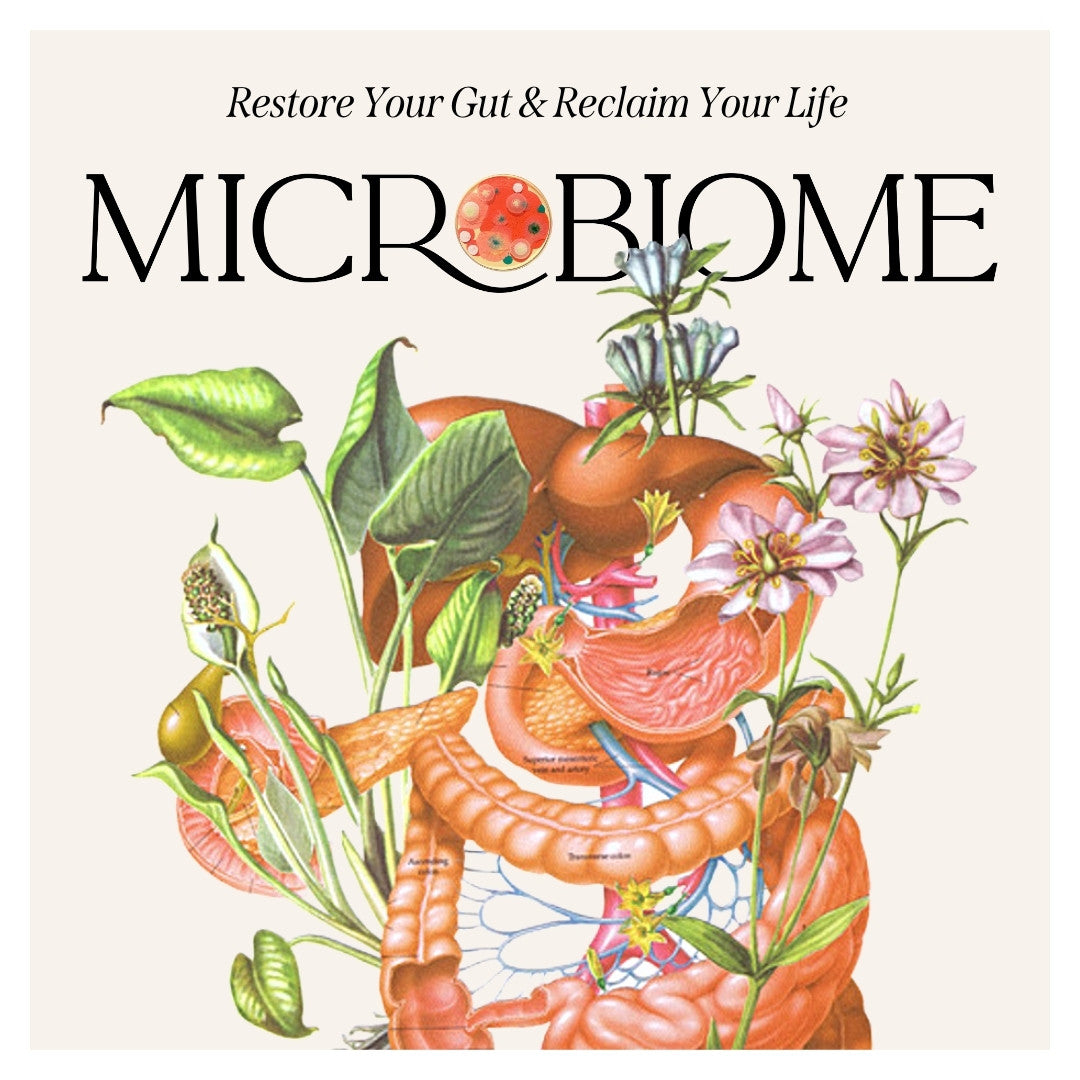

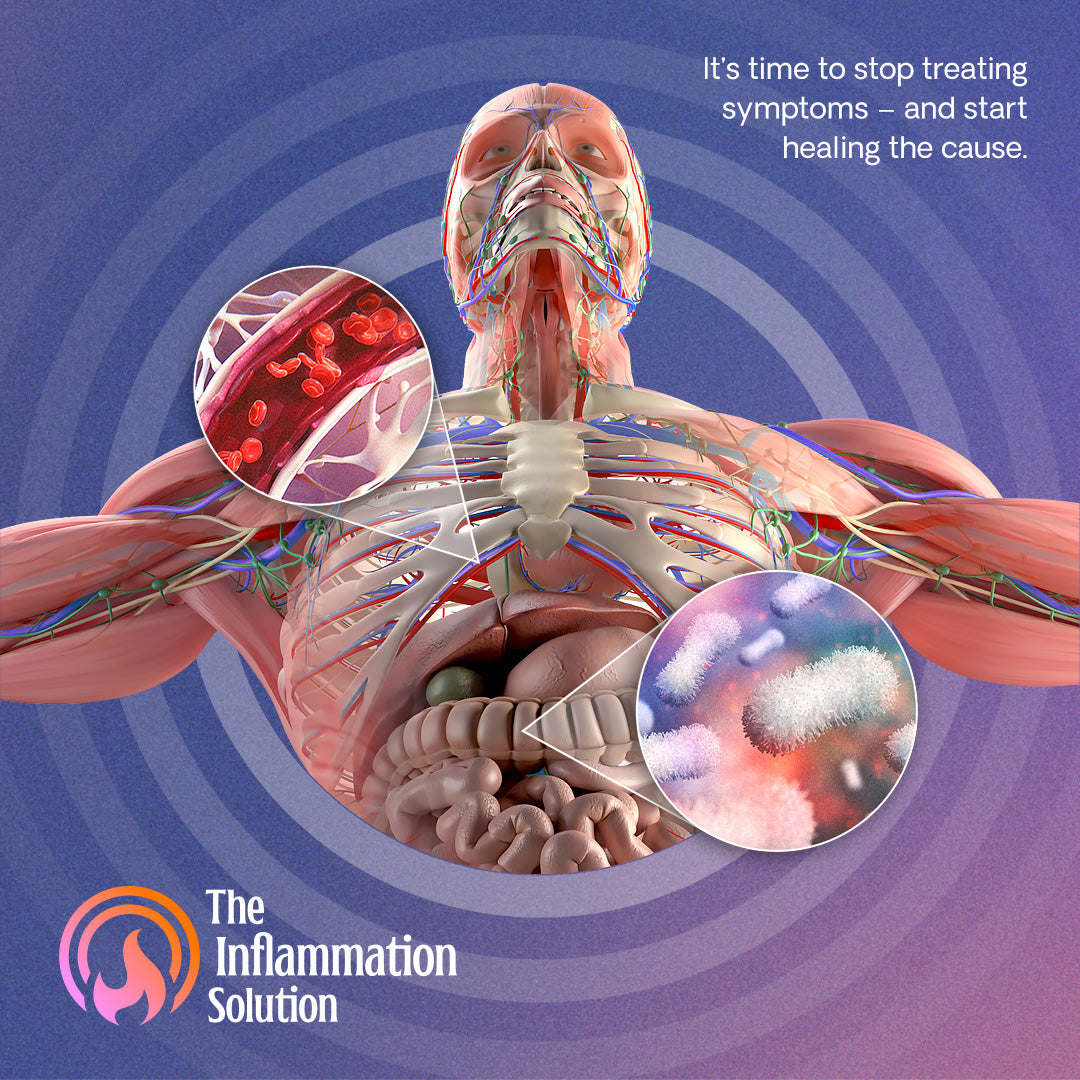
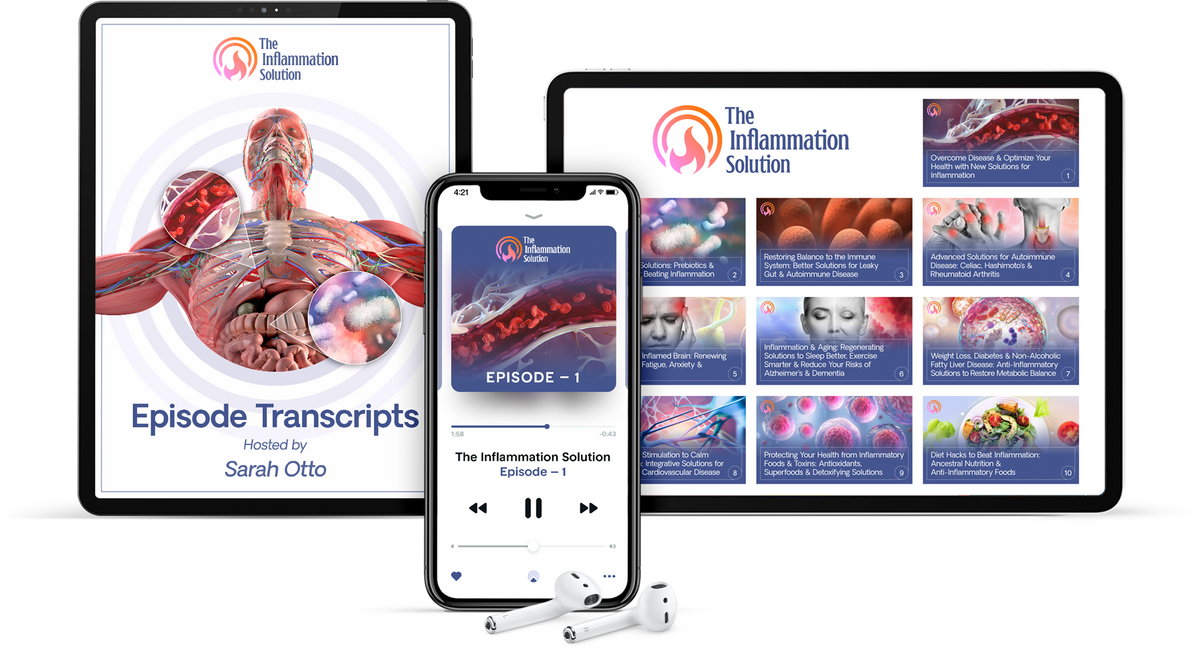
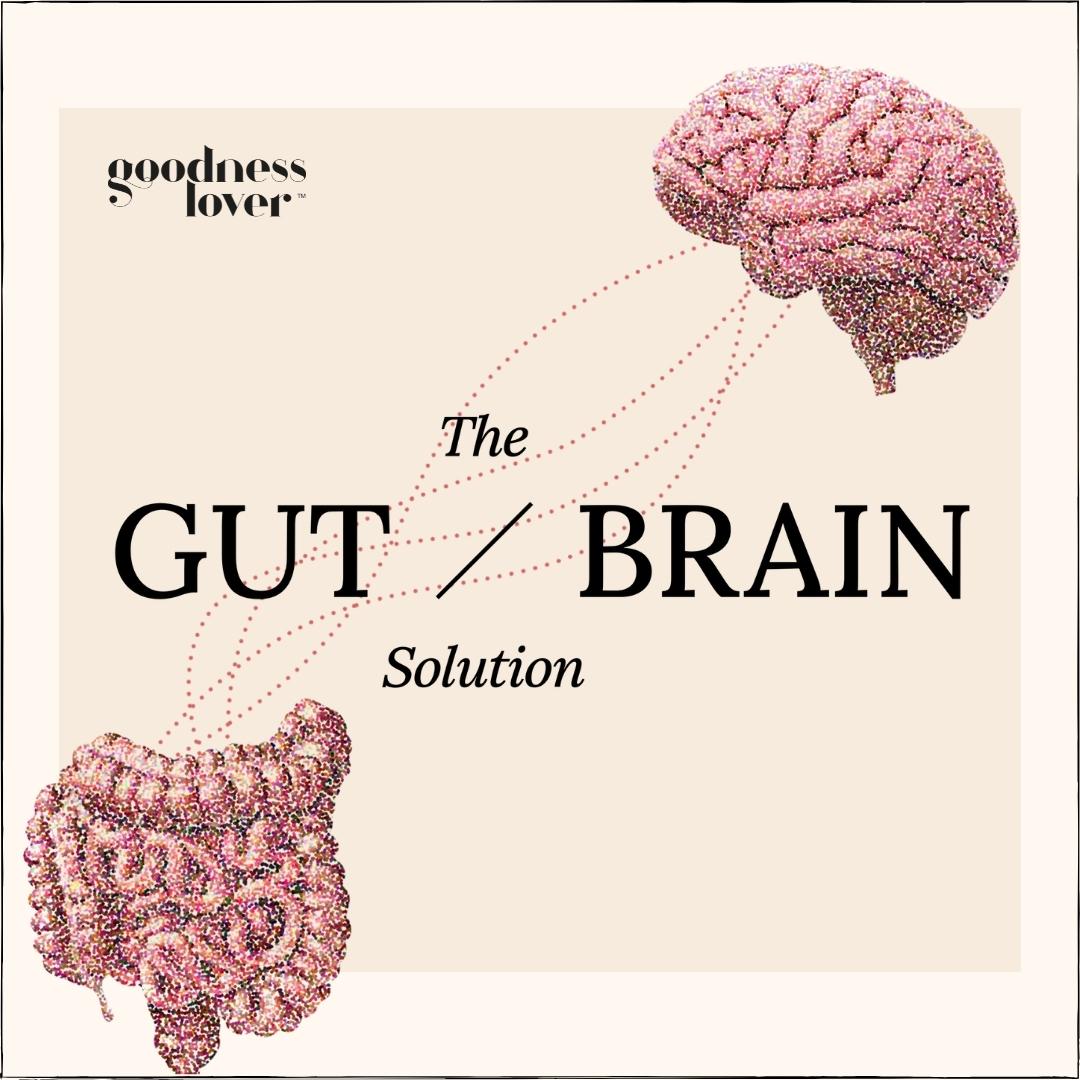

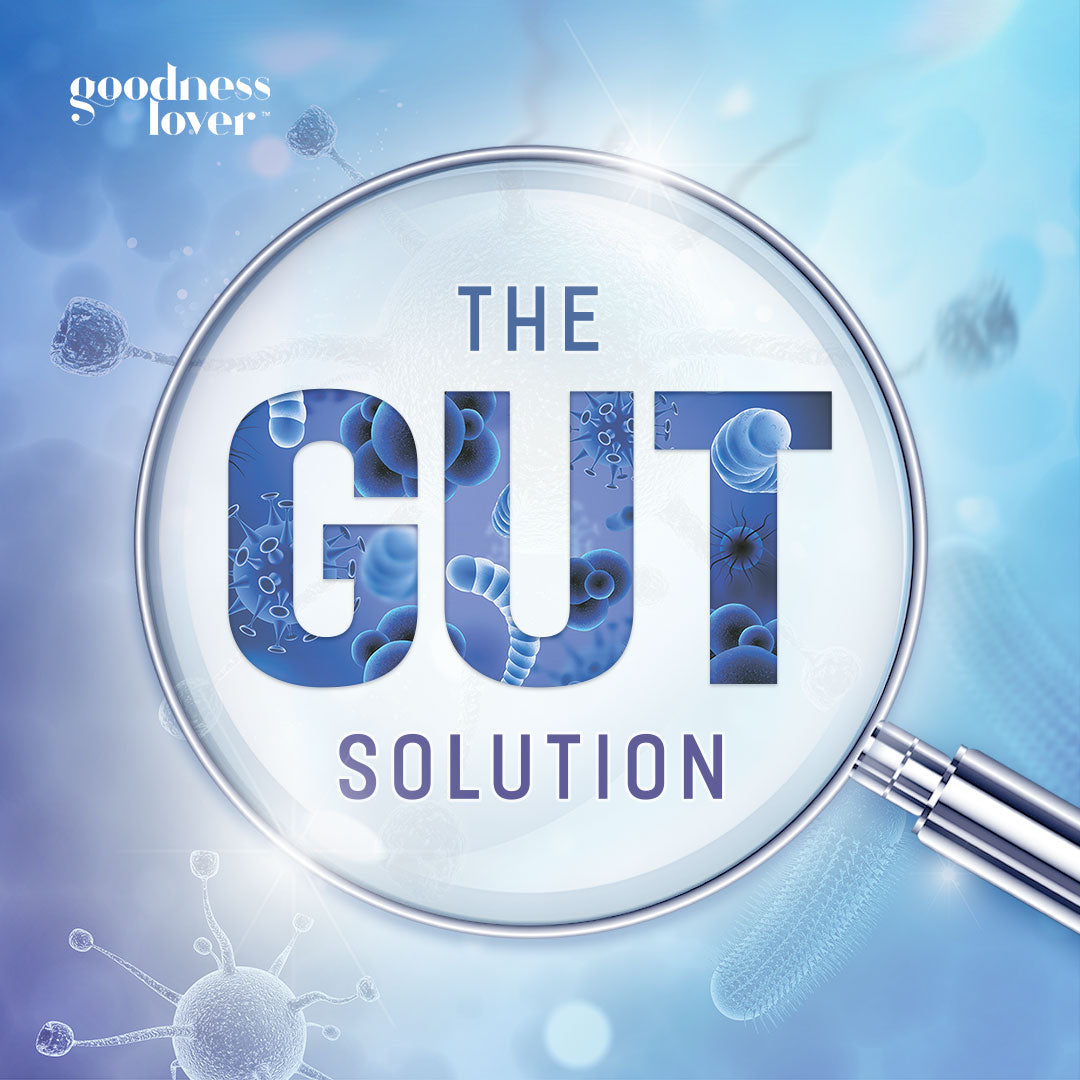
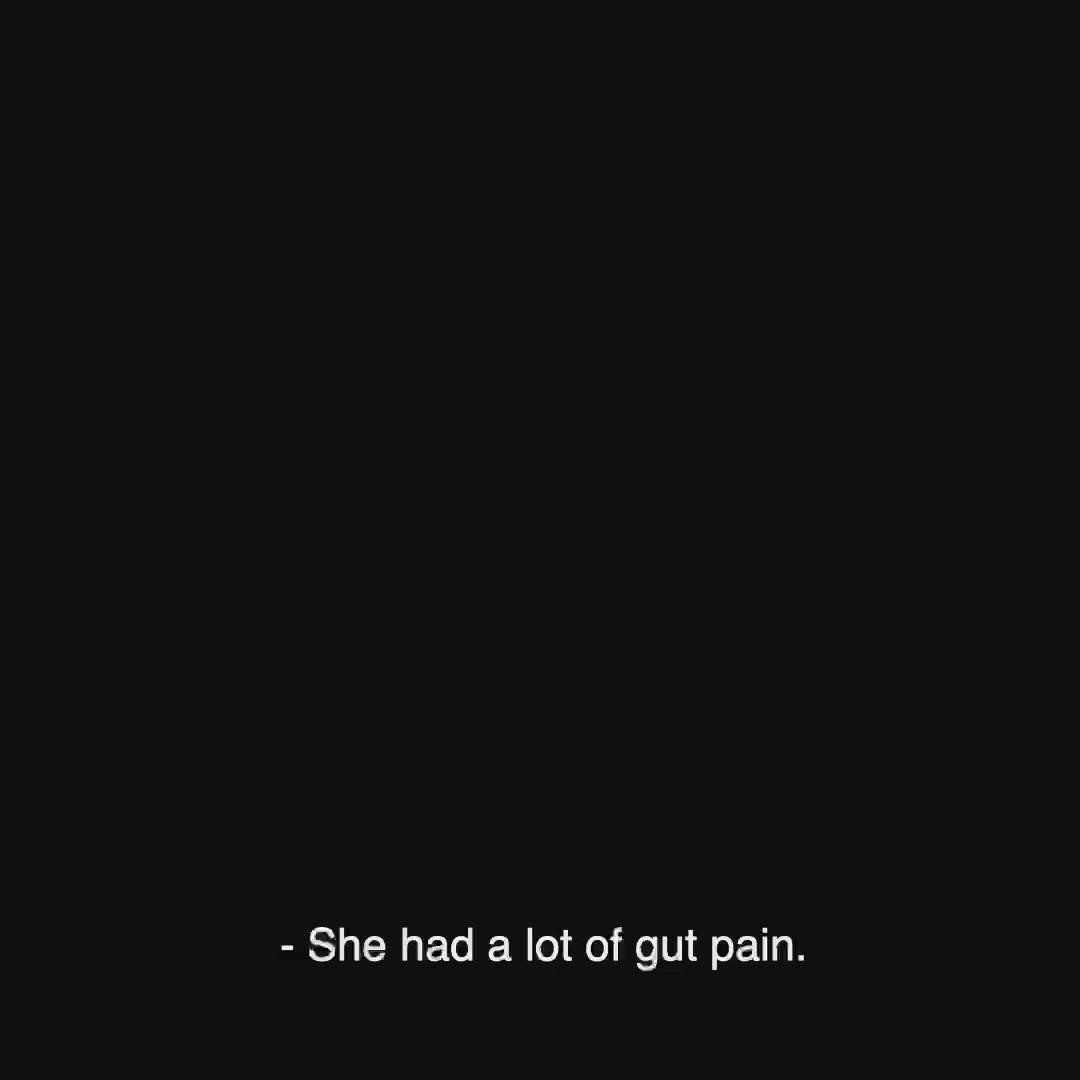
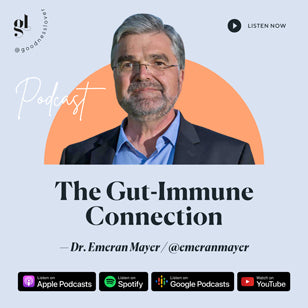
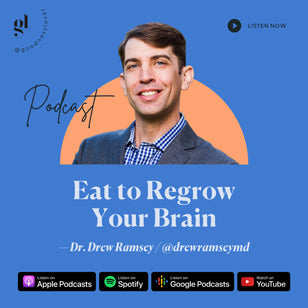

What Do You Think? Comment Below: